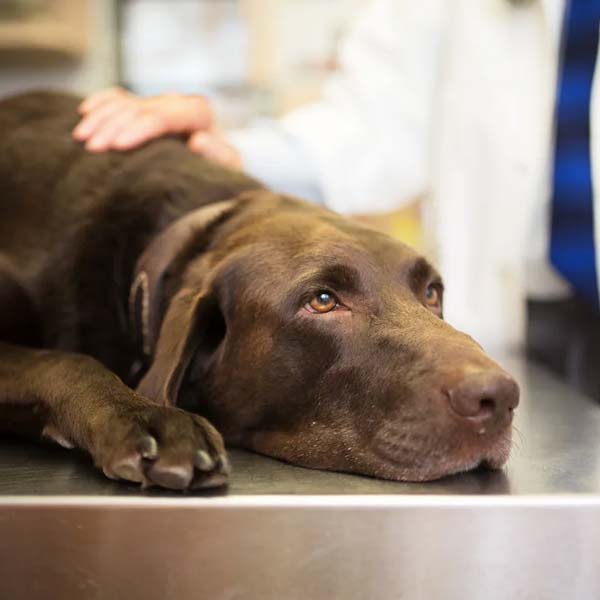Dilated Cardiomyopathy (DCM) is a type of heart disease that affects dogs of all breeds and ages. It is a serious and potentially life-threatening condition that can cause a range of symptoms, from mild to severe. In this article, we will discuss everything you need to know about Dilated Cardiomyopathy in Dogs, including its causes, symptoms, treatment and prevention.

1. What is Dilated Cardiomyopathy (DCM)?
DCM is a condition that affects the heart muscle of dogs. In DCM, the heart muscle becomes weak and enlarged, which causes it to pump blood less effectively. As a result, the heart has to work harder to pump blood throughout the body, which can lead to a range of health problems.
2. Causes of Dilated Cardiomyopathy in Dogs
DCM is caused by a range of factors, including genetic predisposition, poor nutrition, and certain medications. Some breeds are more likely to develop DCM, including Doberman Pinschers, Great Danes, Boxers, and Irish Wolfhounds. It is important to note that not all dogs of these breeds will develop DCM, and dogs of other breeds can also be affected.

3. Symptoms of Dilated Cardiomyopathy in Dogs
The symptoms of DCM can vary depending on the severity of the disease. Some common symptoms of DCM in dogs include:
- Coughing
- Difficulty breathing
- Fatigue
- Loss of appetite
- Weight loss
- Swelling of the abdomen and legs
If you notice any of these symptoms in your dog, it is important to take them to the vet for a check-up.
4. Treatment for Dilated Cardiomyopathy in Dogs
The treatment for DCM in dogs will depend on the severity of the disease. In some cases, medication can be used to improve heart function and reduce symptoms. In more severe cases, surgery may be necessary to remove fluid from the chest or repair a damaged heart valve.
5. Prevention of Dilated Cardiomyopathy in Dogs
Preventing DCM in dogs is possible through a combination of proper nutrition and regular exercise. Feeding your dog a high-quality diet that is low in sodium and rich in nutrients can help to maintain heart health. Additionally, regular exercise can help to keep your dog’s heart strong and healthy.

In conclusion, Dilated Cardiomyopathy is a serious condition that can affect dogs of all breeds and ages. If you notice any symptoms in your dog, it is important to take them to the vet for a check-up. By maintaining a healthy diet and regular exercise routine, you can help to prevent DCM in your dog. If your dog is diagnosed with DCM, your vet can work with you to develop an appropriate treatment plan. With the right care and attention, dogs with DCM can lead happy and healthy lives.